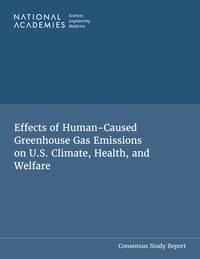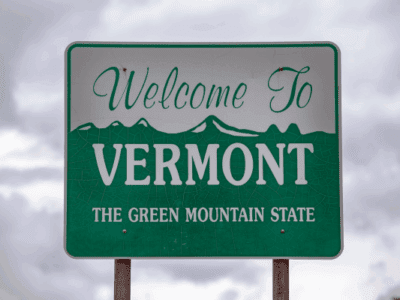Climate Policy After the 2024 Election
In this UCLA Emmett Institute webinar, panelists discussed the climate implications of the 2024 election from the state, national, and international perspective.
Climate certainty. Legislative action. Whipsaw regulations. An exodus of civil servants. Chinese leadership despite being the world’s largest emitter. Those are a few of the possible outcomes of the Nov. 5 presidential election, according to our panelists.
More than in any previous election, the two major candidates’ track records on environmental policies are well-established and diametrically opposed. Thanks to campaign pledges, party platforms, and written plans by former administration officials, we can evaluate the candidates for what they are likely to do in the critical years ahead.
The panel, moderated by Emmett Institute Deputy Director Julia Stein, explored the climate implications of the 2024 election from the national and international perspective, as well as did a deep dive on how California policymakers are preparing to lead at the state level whatever the next four years bring. Below is a recap with edited excerpts of their conversation.
Panelists:
Ann Carlson, former Acting Administrator of NHTSA, Shirley Shapiro Professor of Environmental Law at UCLA, and Faculty Director of the Emmett Institute.
Alex Wang, Walter and Shirley Wang Chair in U.S.-China Relations and Communications, Professor of Law at UCLA, and Faculty Co-Director of the Emmett Institute.
Sen. Henry Stern, State Senator representing California’s 27th District, and Chair of the Joint Legislative Committee on Climate Change Policies.
What’s one issue that will be top of mind after the election if Trump wins or Harris wins?
STERN: I don’t think we’re going to have to go through this ‘what if’ exercise. I’m feeling pretty confident. California hasn’t been relying on the federal government to address climate policy. So from our perspective we may have to get creative about our legal and regulatory approaches, but the direction of not just our economy but the U.S. economy is just charging ahead. I’m feeling optimistic despite the political headwinds because of what the markets are doing… Markets are going to be determinative despite how crazy our politics can get.
WANG: The two candidates as we all know have starkly different visions. The Trump platform is all about doubling down on oil and gas. A Harris administration would continue the work on climate action and green development. China is forging ahead very quickly on renewable deployment, manufacturing. The US is playing catch up on this right now. The Inflation Reduction Act is a great first move and it’s making headway but much more needs to be done and the idea that you would slow it down for 4 years would really be devastating for that competition.
CARLSON: One thing I’m worried about in the event that we see a return to the administration that predated the Biden-Harris Administration is the Schedule F proposal in Project 2025. I have two reasons: This weekend, you may have seen the head of the Heritage Foundation, who really is the brains behind Project 2025, denies the existence of climate change. That’s just stunning to me, but it’s a reality. And I think ‘Schedule F’ is in many ways aimed at EPA… I worry a lot about not just having the expertise to work on climate policy, but also losing some of our best civil servants.
Q: How is California thinking of safeguarding climate investments?
STERN: The idea of ‘Trump-proofing’ California’s regulatory and budgetary landscape is not a new exercise, but the potential implications to have to fill the Inflation Reduction Act gap as a state is daunting. We’re already chipping away at that self-determination in a sense by putting a climate bond on the ballot, by looking at beefing up the cap and trade program and making carbon pricing bigger. We are planning accordingly for if the California waiver goes, then what? But I think people are fixating too much on just the presidential election. Congress becomes incredibly important and there’s a chance that Democrats take both houses and if that happens, we could end up putting some actual certainty back into the law. I don’t know if it becomes policy out the gates, but we might actually have a double threat at least in the House and the Senate.
CARLSON: Regardless of who is the next president, EPA, potentially California, NHTSA, potentially the Department of Energy and Treasury Department are going to face headwinds in the court. We’d be naive to say otherwise… That’s why the IRA is so important, because it’s congressionally adopted. The rest of the exercise of authority for much of our climate policy is coming from old statutes that Congress hasn’t amended in a long time, particularly the Clean Air Act.
I’m nervous about whether the Supreme Court takes up California’s authority under the Clean Air Act to issue its own mobile source standards. I do think the court is likely to be protective of California when it is exercising that authority for conventional air pollution as opposed to climate—and California has been careful to draft its regulations to demonstrate that these are necessary to comply with air pollution standards in addition to climate—but it’s going to be a bumpy road… I do think the courts are something to worry about, regardless of who is president.
Q: If there was a Democratically controlled Congress and administration, how far could climate policy be pushed?
STERN: My sense is that the future of climate policy is health policy, it’s jobs policy, it’s air and water quality policy. It’s not necessarily trying to drive ‘climate’ even as the headline every time. But it’s about household energy costs.
WANG: In the current issue of Foreign Affairs, Brian Deese, who served in the Biden administration, has a proposal for a Clean Energy Marshall Plan and it’s an intriguing possibility, the idea that you would really make that a central aspect of foreign policy and try to build alliances and use American manufacturing to sell products for the clean energy transition around the world.
Where there is a big difference between now and the original Marshall Plan is that there happens to be another country that’s way ahead of us on the manufacturing. So, if the Democrats had control of Congress and the presidency, they would have much more ability to sort of put in place the pieces that you would need to really compete on that. It’s not a sort of open field where you can go sell to a sort of you know places that have been decimated by war as in after World War II, but now you have countries that are already for the last decade have been getting courted by Chinese state-owned enterprises and companies and getting a lot of products from them that work well and are cheap. So, the question is how the US competes. I think part of it is not trying to compete on the old technologies like solar PV but trying to innovate on the new things. That’s really America’s strength: to go the things that haven’t been invented yet and try to really get ahead.
Q: How else can California chart a path forward on climate post-election?
CARLSON: Markets are moving toward EV adoption. The IRA is in place and it’s not going anywhere, quickly at least. We have massive investments in EV manufacturing and battery manufacturing, huge competition from China with very inexpensive vehicles and that’s all going to happen regardless of who is president. I don’t think you can stop that train. It might matter on the margins in terms of speed and it might matter in the medium- and heavy-duty sector which is where California is so important and such a leader. I do want to just say that I think we’re heading toward electrification regardless. I think we’re heading toward it in the medium-duty sector regardless.
There are a lot of things that California can do that are outside of using its waiver authority including incentives and so forth. I want to stress this again: the Clean Air Act requires California to meet very stringent standards for things like ozone pollution and we cannot in the South Coast Air Quality Management District in Southern California meet those standards without going to zero-emission vehicles across the fleet. Put aside climate change. And we have special authority under the Clean Air Act to issue our own standards precisely to meet that problem and that ought to continue regardless of who is president and we ought to be stressing it over and over and over again because it’s federal law and federal standards that actually appropriately require Southern California to clean up its air. And the way we have to do that is to clean our vehicle fleet.
There’s some really innovative stuff going on in the South Coast Air Quality Management District on what are called indirect source rules—super wonky but really important power where California is essentially taking those big stationary sources like warehouses and ports and rail yards and regulating the truck traffic that is attracted to those sources as a result of their existence. So the warehouses aren’t polluters, but they’re polluters by virtue of the fact that trucks come in and out to pick up to ship goods etc. The Clean Air Act allows for the regulation of those indirect sources so there’s a lot of creative stuff California can do even without the waiver authority. It’s not as good—I’d rather have the waiver authority, and I’d rather have EPA granting waivers. I’d rather have the court uphold that waiver authority, but we’re heading toward electrification, and potentially toward hydrogen trucks, regardless of what happens.
STERN: It does concern me on the heavy-duty vehicle piece, I do think that’s make or break in the next three or four years on whether America decides to get that first mover’s advantage and be the next leaders or whether we cede that to China. We built Tesla off the Clean Air Act waiver and the ZEV credit market that we built using that authority got cash flow to that company and got them off the ground. Is the next Tesla for Trucking?
Watch a full recording of the panel.







Reader Comments